-
Dr. Jaume Mora receives the IV FERO Dr. Baselga Grant to promote new therapies against pediatric cancer
The scientific director of the Pediatric Cancer Center Barcelona receives a grant of €300,000 for a three-year project aimed at developing more effective and less toxic treatments for childhood cancer.

-
Bringing Science Closer to Schools: A decade of training young people in clinical research and inspiring scientific vocations
Institut de Recerca Sant Joan de Déu and Farmaindustria launched this project ten years ago, and it has already reached more than 3,000 high school and vocational training students in Barcelona alone.

-
The use of artificial intelligence improves the diagnosis of a rare neuromuscular disease
An artificial intelligence algorithm allows for the high-precision diagnosis of collagen VI-related congenital muscular dystrophy.
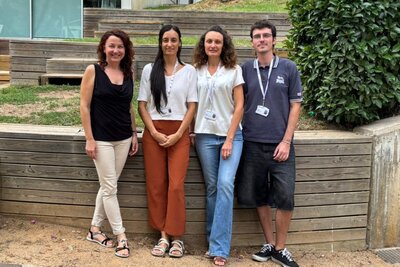
-
Dr. Carles Lerín recognized with the 2025 IFF Science Award for his pioneering research in child nutrition and health
Dr. Carles Lerín, head of the Pediatric Metabolic Diseases Research Group at the Sant Joan de Déu Research Institute (IRSJD), has been awarded the 2025 IFF Science Award, a prestigious international recognition in the fields of nutrition, health, and biomedical research.
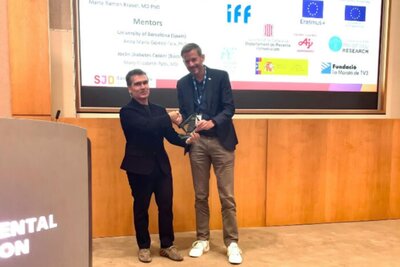
-
The IRSJD reaffirms its commitment to its research team by renewing the HR Excellence in Research Award
L’Insitut de Recerca Sant Joan de Déu (IRSJD) has been reaccredited with the HR Excellence in Research Award granted by the European Commission, after successfully passing an evaluation conducted by independent experts. This distinction recognizes institutions that promote good practices in research talent management and align their policies with the principles of the European Charter for Researchers and the Code of Conduct for the Recruitment of Researchers.
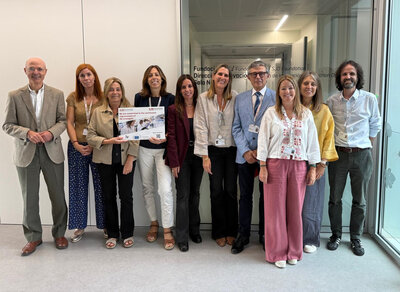
-
Parc Sanitari Sant Joan de Déu Hosts the First Doctoral Thesis Defense by a Professional of the Institution at the RISE Center Auditorium
On September 30, 2025, a very special academic event took place at Parc Sanitari Sant Joan de Déu (PSSJD): the first doctoral thesis defense by a professional of the institution, held in the auditorium of the RISE center.
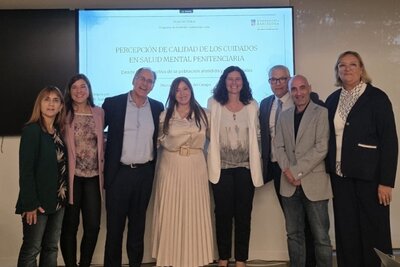
-
A study led by SJD identifies new therapeutic targets for Ewing sarcoma
The study identifies the demethylases KDM6A and KDM6B as essential collaborators of the fusion protein EWSR1::FLI1, responsible for the epigenetic reprogramming that drives tumor growth.
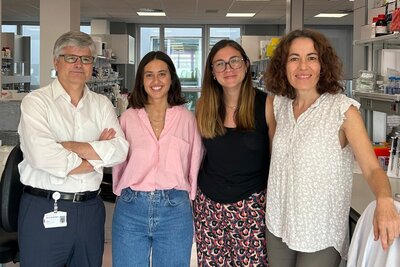
-
A study by Sant Joan de Déu identifies the mechanisms that hinder the effectiveness of treatment for diffuse intrinsic pontine glioma in children
DIPG is an aggressive brain tumor that mainly affects pediatric patients and has a poor prognosis in all cases. The research team has identified two key proteins secreted by the tumor that suppress the immune system and promote the formation of barriers that hinder treatment.
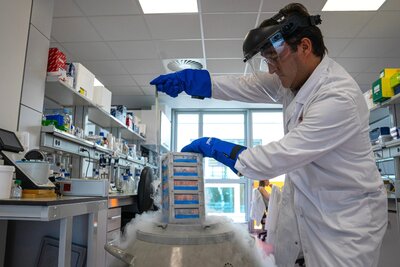
-
Genetic risk for psychiatric disorders is related to emotional and behavioral problems in undiagnosed children
Genetic susceptibility to developing ADHD shows the strongest association with mental problems during childhood and adolescence compared to genetic risk for other psychiatric conditions.

